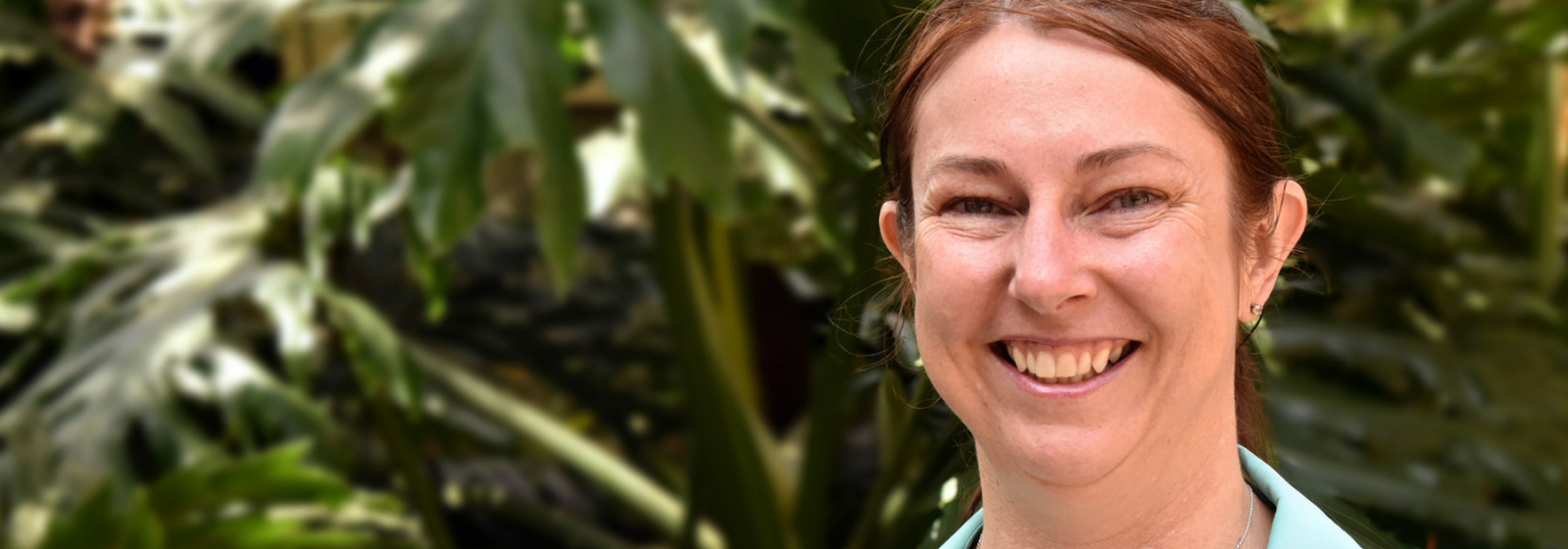The CGIAR Research Program on Livestock (Livestock CRP) recently announced with pleasure the appointment of Dr. Karen Marshall as its new flagship leader for Livestock and Genetics. Karen is not a newbie to the position, having led the flagship previously at the end of the first phase of the CRP under Livestock and Fish and contributed significantly to the vision and mission of the flagship in its next phase under the Livestock CRP.
Originally from Australia, Karen brings to the role 12 years experience at the International Livestock Research Institute (ILRI), working across Africa and South and South East Asia. On International Women and Girl’s in Science day, we celebrate Karen’s contributions in the area of genetics, where she has focused on optimizing the use of animal genetic resources (AnGR) in developing country livestock systems, for improved livelihoods, food security and environmental sustainability.
Here Karen shares with us her vision for the Livestock and Genetics flagship and talks about what motivates her most.
With 3 years left on the clock, what opportunities do you see for the flagship and for the Livestock CRP as a whole?
Over the course of the first phase of the CRP and two years into this one, the Livestock and Genetics flagship has built up considerable knowledge around which models of genetic improvement may or may not work in a developing country setting. Additionally, new tools in phenomics, genomics and ICT are now available, allowing us to overcome the technical limitations to genetic improvement strategies that we’ve encountered in the past. Also, we are now working in a landscape where more national partners than ever are prioritizing genetic improvement in their livestock development plans. This opens up even more opportunities to implement genetic improvement strategies sustainably and at scale, to make a real difference in the productivity of livestock and livelihoods of rural livestock keepers.
We will continue to explore and expand upon the work we have been doing on how animal genetic resources (i.e. livestock) retain or improve productivity in the face of a changing climate – especially in areas with hotter temperatures and less and/or lower quality feed. One example: we are initiating the development of a dairy cattle research facility at ILRI’s Kapiti farm in Kenya, allowing us to assess how different breed-types of cattle respond to different environmental challenges. This will lead to more informed decision-making on which breed-types to promote moving forward.
What do you bring to the flagship leadership position?
I am a strong supporter and believer in the value of inter-disciplinary work and will work to ensure that potential cross-flagship collaborations are capitalized upon. I also hope to better integrate gender and youth dimensions within our flagship, working and conceptualizing jointly with our gender and youth experts.
In my work I have developed an understanding of livestock genetics from both upstream and downstream (applied) viewpoints. I am therefore keen to see that we maintain a focus on cutting edge research whilst delivering on our stakeholders’ needs.
What drew you towards working as a genetics scientist in agricultural research for development?
Agriculture comes naturally to me as I grew up on a large farm in Australia of more than 1,000 acres, spending much of my weekends and holidays helping manage the family herd of Brangus cattle, and helping with wheat and cotton cropping. I chose genetics because of a fascination with biology and pursued a path of research for development because I wanted to make a difference.
Could you describe some of your professional highlights?
I take sincere pride and pleasure in building the capacity of my students, especially as there are few trained animal breeders in developing countries. They have have come from West, East and South Africa, Europe, USA, UK, Australia and elsewhere and have been able to take what they have learned and apply that in their home countries.
It has also been gratifying working with national partners to develop projects that meet national needs, such as projects I have worked on in Senegal, Uganda, Somaliland, India and Vietnam. Truly, a lot of the success I’ve encountered in my work has had much to do with the relations I develop across disciplines, within and outside of ILRI.
What gets you up in the morning?
I get to wake up each morning to creative and loving children, then head to work where I am surrounded by a diverse and motivated team, in a rewarding and challenging environment.
